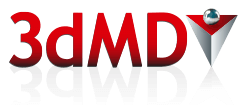Date: June 2016.
Source: Scientific Reports 6, 28242; doi: 10.1038/srep28242.
Abstract: Numerous problems regarding craniomaxillofacial navigation surgery are not well understood. In this study, we performed a double-center clinical study to quantitatively evaluate the characteristics of our navigation system and experience in craniomaxillofacial navigation surgery. Fifty-six patients with craniomaxillofacial disease were included and randomly divided into experimental (using our AccuNavi-A system) and control (using Strker system) groups to compare the surgical effects. The results revealed that the average pre-operative planning time was 32.32 mins vs 29.74 mins between the experimental and control group, respectively (p > 0.05). The average operative time was 295.61 mins vs 233.56 mins (p > 0.05). The point registration orientation accuracy was 0.83 mm vs 0.92 mm. The maximal average preoperative navigation orientation accuracy was 1.03 mm vs 1.17 mm. The maximal average persistent navigation orientation accuracy was 1.15 mm vs 0.09 mm. The maximal average navigation orientation accuracy after registration recovery was 1.15 mm vs 1.39 mm between the experimental and control group. All patients healed, and their function and profile improved. These findings demonstrate that although surgeons should consider the patients’ time and monetary costs, our qualified navigation surgery system and experience could offer an accurate guide during a variety of craniomaxillofacial surgeries.
Article: An excellent navigation system and experience in craniomaxillofacial navigation surgery: a double-center study.
Authors: Jiewen Dai, Jinyang Wu, Xudong Wang, Xudong Yang, Yunong Wu, Bing Xu, Jun Shi, Hongbo Yu, Min Cai, Wenbin Zhang, Lei Zhang, Hao Sun, Guofang Shen, and Shilei Zhang.
Training AI, Wearing Tech,
and Imaging Health.
- Home
- Products
- Customers
- Customer Research
- Healthcare to Artificial Intelligence
- Blog/News
- Contact Us
